
As protests against Morocco's denial of the Saharawis' social and economic human rights have become daily news in occupied Western Sahara, eye-witnesses report a police siege targeting the hunger striking Saharawi graduates.
Sources on the ground state that the Moroccan security forces have blocked the entrance to the El Aaiun flat where a group of more than a dozen unemployed Saharawi graduates are carrying out a hunger strike since 12 January 2016. Sympathizers are not allowed to enter the building. In addition, a convoy of military vehicles is reportedly stationed near the place, and there are rumours that the police is planning to remove the hunger strikers by force. The siege is said to have started in the early hours of Monday morning, 18 January.
For months, unemployed Saharawi graduates in El Aaiun have been staging peaceful protests against discriminatory employment practices by OCP, Morocco's state-owned phosphate company. They demand an end to the systematic marginalization of Saharawis in their own country. The group, operating under the name OCP Skills Sahara, calls for the right to work, particularly in view of Morocco's exploitation of Western Sahara's natural resources. Without exception, the demonstrations, now occuring almost daily, are met with violence on the part of the Moroccan security forces.
Footage of yesterday's protest El Aaiun, the capital city of occupied Western Sahara, is included below.
What started as off as regular demonstrations accelerated into almost daily protests, triggered by OCP's promise last November that it would create of 500 new jobs in the phosphate plant in Western Sahara, Phosboucraa. It quickly became clear that most of these new positions would not be accessible to Saharawis, as the qualification criteria are simply out of reach to them. Saharawis today live as a marginalized minority in their own land and often cannot afford higher education. During the 40 years occupation, Morocco has not established a single university in Western Sahara.
Saharawis have long lamented that they've been systematically replaced by Moroccan settlers ever since OCP took over the phosphate mines following Morocco's violent annexation of the larger part of Western Sahara.
In October last year, the UN Committee on Economic, Social and Cultural Rights stated that the Saharawis are indeed particularly affected by poverty, and expressed its concern that the Saharawis right to dispose of their natural resources was still not respected. In particular, the Committee urged Morocco to respect the rights of the Saharawis to be informed and to give their prior consent to the exploitation of their resources.
The photos below were taken at yesterday's protest in El Aaiun. Protesters chanted slogans on human rights and the right to work, and called for an "end to Morocco's policy of systematic marginalisation of Saharawis".
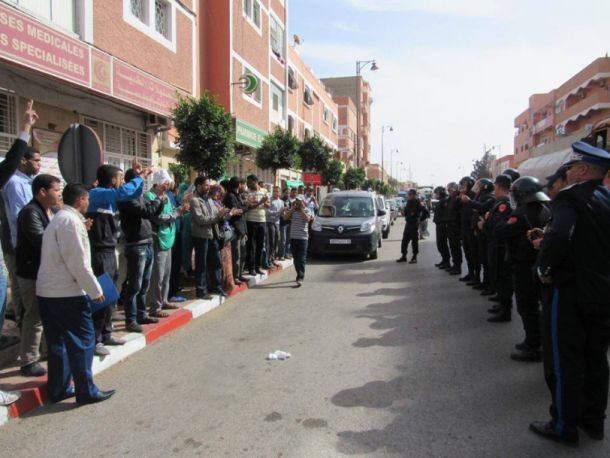
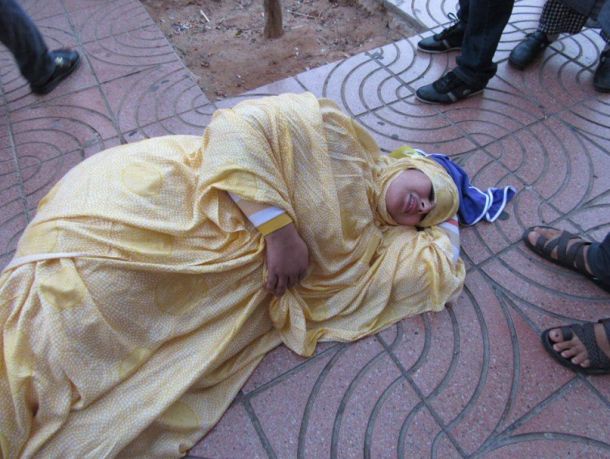
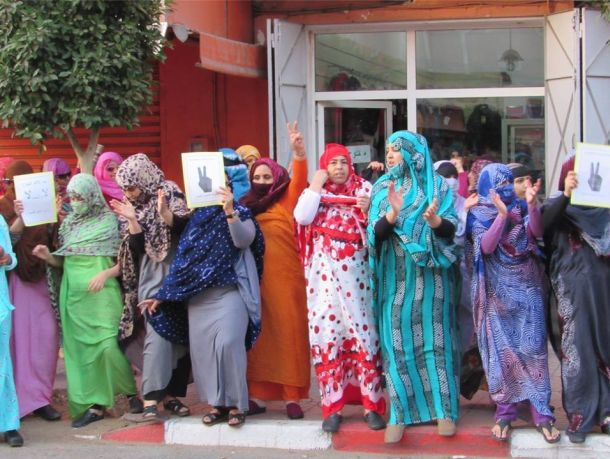
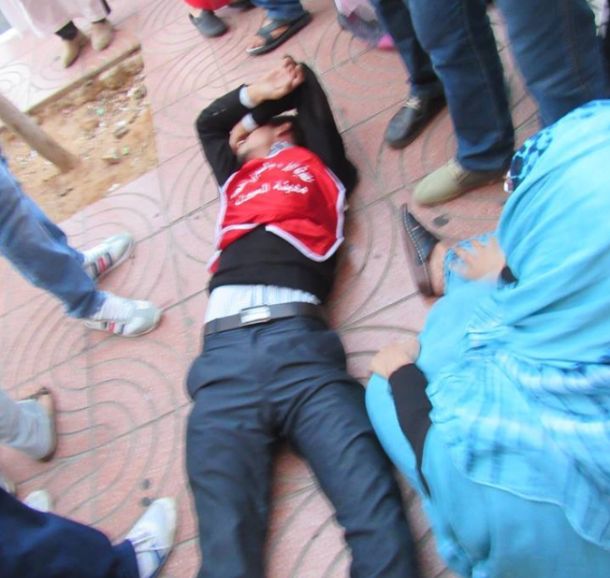
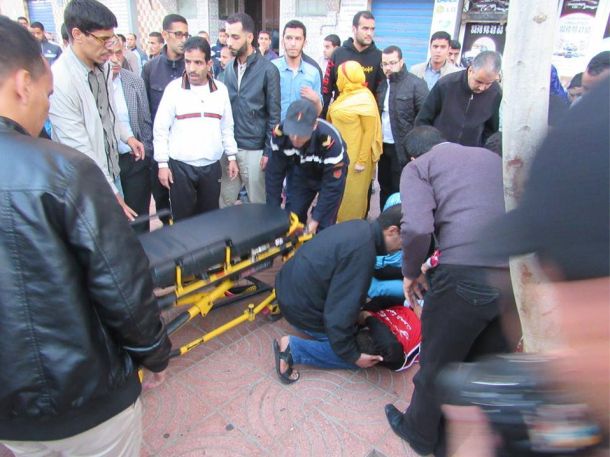
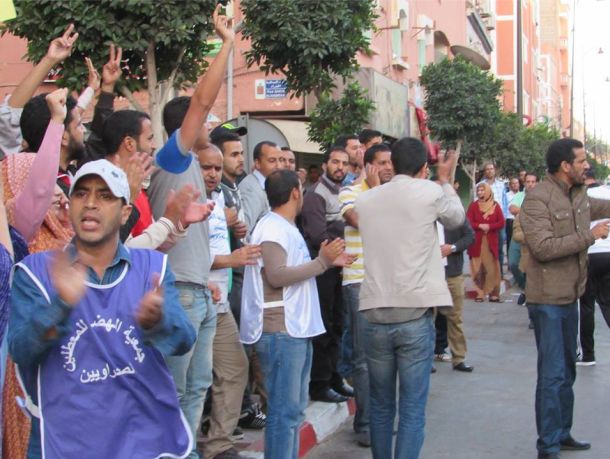
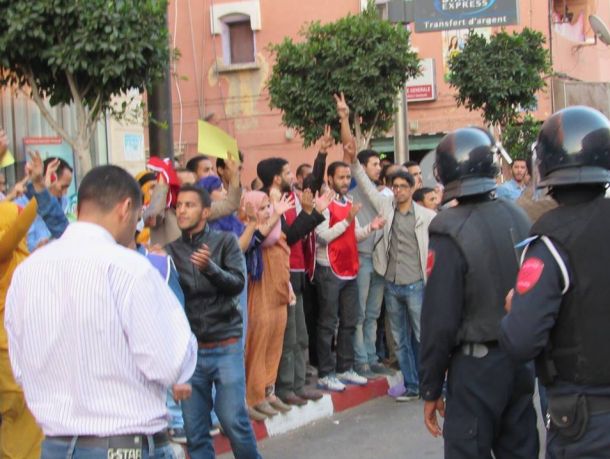
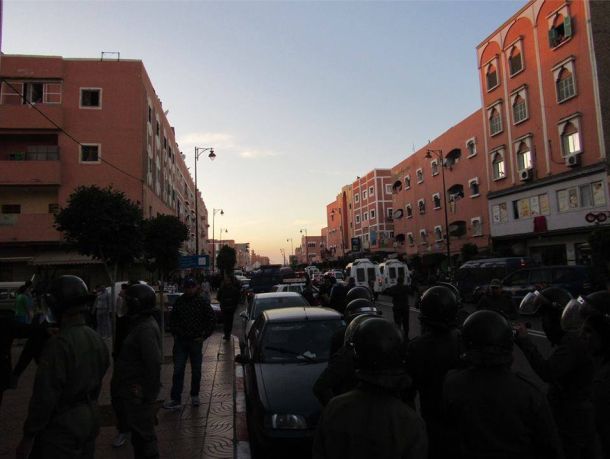
Morocco allocates land in occupied Western Sahara to green hydrogen investors
Morocco’s ambitions to become a global green hydrogen powerhouse are accelerating. Yet, Rabat is allocating land in a territory it does not legally own.
US eyes minerals in occupied Western Sahara
Seeking to position itself as a key supplier of strategic minerals for Western powers, Morocco has signed a new agreement with the United States that covers Western Sahara’s waters and the critical minerals harboured there.
TAQA-Moeve obtains land in occupied Western Sahara
Morocco’s push for green hydrogen has taken a decisive step forward - on territory it does not legally own.
EU-Morocco Statement: autonomy without self-determination, law without lawfulness
A joint statement that came out of last week’s EU-Morocco Association Council asks readers to believe in a fiction: that an undefined autonomy plan imposed by an occupying power can satisfy the right to self-determination, and that respect for international law can coexist with the systematic ignoring of the EU’s own highest court.



